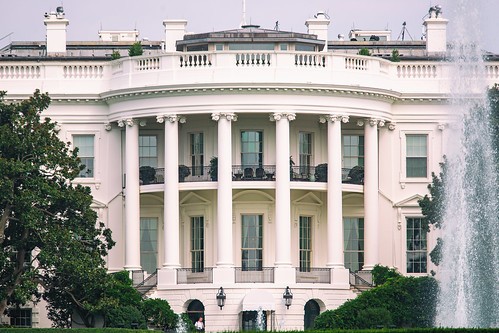Effective March 12, 2020, the US Department of Justice (DOJ) prohibits its US attorneys from entering into settlements in which DOJ lowers penalties for defendants that agree to conduct “supplemental environmental projects (SEPs)”, if the SEP involves payments to a third party. This action is the latest in a series of DOJ moves against SEPs since President Trump took office. The first such step was a June 2017 DOJ management memorandum directing US attorneys NOT to agree to SEPs that include payments to third parties (I wrote about that memo HERE). The second was an August 2019 memorandum restricting use of SEPs in Clean Water Act (CWA) cases against state and local governments, in which DOJ rejected arguments that recent legislation allows them (I wrote about that memo HERE).
Read MoreAudit, Compliance and Risk Blog
Department of Justice Restricts Supplemental Environmental Project Agreements
Posted by Jon Elliott on Wed, May 20, 2020
Tags: Business & Legal, Environmental risks, Environmental, EPA, clean water, clean air, DOJ, SEP, CWA, Environmental Projects
The 2016 Amendments to the Toxic Substances Control Act (TSCA; the “Frank R. Lautenberg Chemical Safety for the 21st Century Act”) assigned the Environmental Protection Agency (EPA) a variety of new responsibilities and powers to review and regulate chemicals in commerce in the United States. These changes include additional requirements to review chemicals already in use (I summarized this piece of the new TSCA here). Despite all the changes to EPA priorities since 2016 (i.e., during the Trump Administration), EPA has marched forward with these chemical reviews. These reviews include formal statutory requirements to identify separate lists of 20 “high priority” – i.e., potentially high risk – chemicals for accelerated reviews, and 20 “low priority” chemicals EPA considers not to need further review. I wrote about EPA’s 2019 proposals for these lists here.
Read MoreTags: Environmental risks, Environmental, EPA, Hazcom, tsca
EPA and the Corps of Engineers Finish Redefining “Waters of the United States”
Posted by Jon Elliott on Wed, Mar 18, 2020
On January 23, 2020 the Environmental Protection Agency (EPA) and the U.S. Army Corps of Engineers (Corps) finalized revisions to narrow their joint regulatory definitions of “waters of the United States”, applying authority under the Clean Water Act (CWA). The agencies characterize this narrowing as an increase in certainty for stakeholders, accomplished by eliminating some of the site-specific discretion that the 2015 rules provided to permit writers.
This marks the latest step in a cycle of rulemakings that began during the Obama administration in 2015, when the same agencies adopted revisions to the same rules expanding their definitions in order to interpret and apply then-recent decisions by the US Supreme Court.
Read MoreTags: Business & Legal, Environmental risks, Environmental, EPA, clean water
Trump Administration Proposes to “Modernize” Federal Environmental Impact Assessments by Narrowing Them
Posted by Jon Elliott on Tue, Feb 25, 2020
The federal Council on Environmental Quality (CEQ) has proposed to revise its regulations administering the National Environmental Policy Act (NEPA) of 1969. NEPA requires federal agencies to assess the environmental effects of their proposed actions, and incorporate this information into their decisions. Government-wide guidance is provided by the White House’s CEQ, established by NEPA and appointed by the President. CEQ issues formal regulations that agencies must follow, and guidance documents that provide additional advice. CEQ also reviews agencies’ NEPA implementation programs, and publishes annual national Environmental Quality Reports.
Read MoreTags: Business & Legal, Environmental risks, Environmental, EHS, EPA, clean water, site auditing, greenhouse
On February 10, the Trump Administration issued its budget proposal for federal Fiscal Year (FY) 2021 (October 1, 2020 through September 30, 2021), entitled “A Budget for America’s Future.” The drastic changes in budgeting for environmental health and safety (EH&S) regulation are consistent with previous proposals from this administration. They have no chance of adoption, particularly given the Democrats’ control of the House of Representatives, but still represent a fair summary of the President’s continuing priorities.
Read MoreTags: Business & Legal, Environmental risks, Environmental, EPA
Northeastern States Propose Regional Cap-and-Trade Program to Reduce Greenhouse Gases From Transportation
Posted by Jon Elliott on Tue, Feb 04, 2020
After nearly a decade of talking and planning, most of the northeast and middle Atlantic states (plus the District of Columbia) in the Transportation and Climate Initiative (TCI) have proposed a cap-and-trade program intended to reduce greenhouse gas (GHG) emissions from transportation. On October 1, TCI issued a “Framework for a Draft Regional Policy Proposal,” and on December 17 a formal “Draft Memorandum of Understanding (MOU)” that jurisdictions can sign to formalize their participation. If things go well, the formal program should begin in 2020.
Read MoreTags: Business & Legal, Environmental risks, Environmental, Greenhouse Gas, ghg, cap-and-trade
New EPA Policy Redefines “Ambient” Air on Stationary Source Sites
Posted by Jon Elliott on Tue, Jan 28, 2020
Although a major focus of the Clean Air Act (CAA) is the definition, attainment and maintenance of national ambient air quality standards (NAAQSs), the statute doesn’t define the term “ambient air.” This gap leaves the Environmental Protection Agency (EPA) to develop regulatory and policy definitions that delimit the reach of CAA authority. Since 1971, EPA’s definition defines “ambient air” as “that portion of the atmosphere, external to buildings, to which the general public has access.” EPA also provides additional details in a series of policy documents, which have just been updated with a memorandum from EPA Administrator Wheeler to expand the exclusions for onsite air.
Read MoreTags: Business & Legal, Environmental risks, Environmental, EPA, CAA
Chemical Safety Board Proposes Accident Reporting Regulations
Posted by Jon Elliott on Tue, Jan 14, 2020
The federal Chemical Safety and Hazard Investigation Board – which usually refers to itself as the Chemical Safety Board or CSB – began operations in 1998. CSB conducts independent investigations of major chemical accidents, issues accident-specific findings, and offers specific or general recommendations for improved chemical handling and regulation (I wrote about one set of proposals here). Since its authorization in the 1990 Clean Air Act (CAA) Amendments, CSB has also had authority to establish chemical accident reporting regulations.
Read MoreTags: Environmental risks, Environmental, Hazcom, RCRA, CAA, CSB
EPA Completes Re-Revisions to Accidental Release Prevention Rules
Posted by Jon Elliott on Mon, Dec 23, 2019
On November 20, 2019, the Environmental Protection Agency (EPA) completed its latest review and revisions to the Accidental Release Prevention (ARP) program for toxic catastrophe prevention under the Clean Air Act (CAA). These changes complete the Trump Administration’s review and repeal of most changes enacted during the Obama Administration, returning ARP requirements to roughly the point they were at before 2016. The remainder of this note summarizes these changes.
Read MoreTags: Business & Legal, Environmental risks, Environmental, EPA, Hazcom, CAA
The Resource Conservation and Recovery Act (RCRA) assigns the US Environmental Protection Agency (EPA) to define and then regulate “hazardous wastes.” RCRA provides EPA considerable discretion, and one way the agency applies that discretion is by separating hazardous wastes into categories that are subject to distinct waste management requirements. One basis for these categorizations is relative risk – since 1995, EPA has defined a limited set of lower-risk wastes as “universal wastes” subject to special rules intended to encourage recycling (40 CFR part 273).
Read MoreTags: Environmental risks, Environmental, EPA, Hazcom, RCRA










